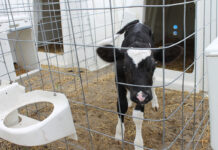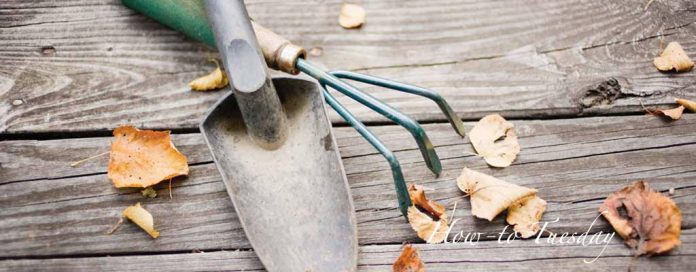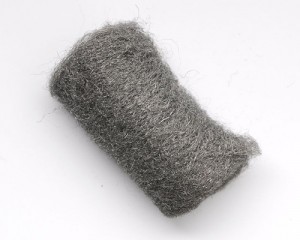Before you call it quits for the gardening year, make sure you’ve taken care of a few housekeeping chores. Gardening tools need special care at the end of the season to ensure they’re in working order come spring.
Here’s some advice for taking care of your gardening supplies before winter.
Repair, sharpen or replace
Determine which tools need repaired, sharpened or replaced. If you do the work now, you can then put your tools away knowing that everything is taken care of.
Fix handles on shovels, hoes, rakes and other tools. Sand wood handles with sand paper. To preserve wood handles, coat them in linseed oil.
Sharpen the blades of pruners, hedge clippers and grass clippers. Today’s Homeowner offers a quick tutorial, explaining the three main options for sharpening blades: grinders, files or sharpening stones. Determine which method is best for you.
Garden tools can get worn out over time. If anything appears to be beyond repair, buy new tools.
Clean
University of Vermont Extension recommends cleaning tools during the gardening season, but especially before putting them away for winter. Cleaning tools not only helps them last longer, it also helps to keep them working effectively. Another reason to clean garden tools is to prevent rust and the spread of diseases found in the soil and on plants.
A wire brush and some water will remove dried and caked dirt on trowels and the tines of garden rakes. Make sure you dry tools after cleaning. Before you put tomato cages or stakes away, clean the dirt off of them.
If you’re dealing with rust, University of Vermont Extension offers several cleaning methods. Brewing strong black tea and immersing the blades of hand tools in it for several hours should work to lift rust off. For tough rust, try sandpaper or a wire bristle brush.
Tune up your tiller and lawn mower. Empty your tiller’s fuel tank before putting out of sight in your shed or garage, or add a fuel stabilizer. Also, change your tiller’s oil, check the spark plugs and clean the air filter, University of Georgia Extension recommends. Make sure your mower’s deck is clean after you’ve mowed for the final time in the fall.
Organize and store


Keep tools off of the floor to prevent moisture and rust over winter. Hang them up instead. Make sure the teeth of rakes are pointing down and away from walkways in your garage or storage shed.
University of Iowa Extension suggests storing leftover fertilizer in its original container. Keep it in a cool, dry location and out of reach of children and pets. The fertilizer packaging should offer recommendations for storage if you’re uncertain.
If you want to use leftover seeds next spring, keep the extras in their original packaging. Most seeds can be used for a couple years after they are purchased.
Inventory
Once gardening is done for the year, take an inventory of your tools and supplies that you can use again in the spring. If your hose has a tear or hole, put it on your list of items to buy. If you need more tomato stakes, make note of it now.












